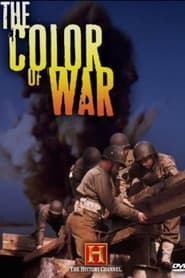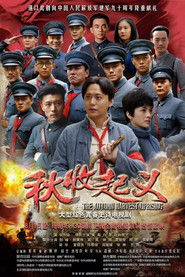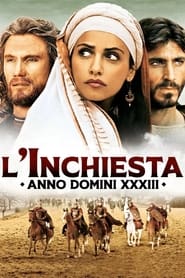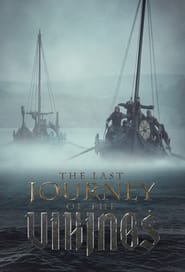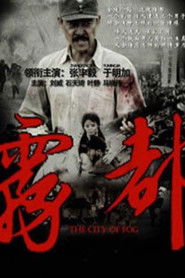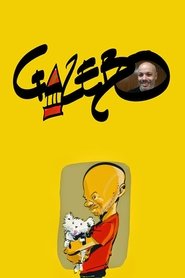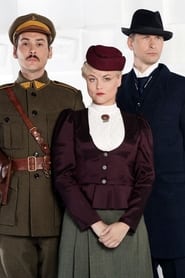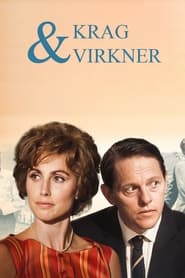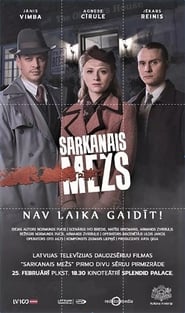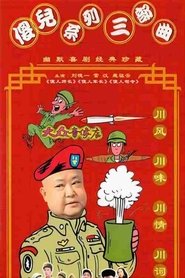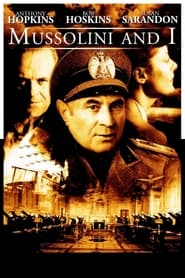Popular War Politics TV Series on Pantaflix - Page 68
-
盖世太保枪口下的中国女人
2002
盖世太保枪口下的中国女人
2002
-
The Color of War
2001
-
1914-1945: They Made History
2016
star 7Between 1914 and 1945, two major conflicts engulfed the planet. Among the combatants of the First World War, eight men would play a decisive role in the next one. -
The Last Journey Of The Vikings
2020
star 7.4Nearly 1,000 years ago, the Vikings left Scandinavia and settled across Europe - giving their name to Normandy along the way - before their Norman descendants seized the English throne at the Battle of Hastings in 1066. But what do we really know about them? By combining expert analysis with compelling drama, 'The Last Journey of the Vikings' (Swedish title: 'Vikingarnas sista resa') tells a new and often surprising story about this complex people. -
雾都
2012
雾都
2012
-
一世情缘
2007
一世情缘
2007
-
Gazebo
2013
-
Sword of Honour
1986
Sword of Honour
1986
Capturing the spirit of the age and the turmoil of the times, Sword of Honour tells the heartbreaking story of a nation at war, the soldiers who left their families to fight, the social upheaval and the emotionally perilous journey back home. -
The Mission of Major Atherton
1986
This true story is made up of two episodes that show Operation Hydra. After the fall of the Uzice Republic and the success of the first enemy offensive, the British sent their mission and this series shows the events. -
The Cost of Freedom. Volunteers
2016
TV series tells about 1918 February 16 Signing of the Lithuanian Independence Act and other historical events that followed this important event in Lithuania until the occupation of Lithuania in 1940. -
Krag & Virkner
2022
Krag & Virkner
2022
-
Victory at Sea
1952
Victory at Sea
1952
star 6.5Victory at Sea is a documentary television series about naval warfare during World War II that was originally broadcast by NBC in the USA in 1952–1953. It was condensed into a film in 1954. Excerpts from the music soundtrack, by Richard Rodgers and Robert Russell Bennett, were re-recorded and sold as record albums. The original TV broadcasts comprised 26 half-hour segments—Sunday afternoons at 3pm in most markets—starting October 26, 1952 and ending May 3, 1953. The series, which won an Emmy award in 1954 as "best public affairs program", played an important part in establishing historic "compilation" documentaries as a viable television genre. Over 13,000 hours of footage gathered from US, British, German and Japanese navies during World War II were perused in the making of these compelling episodes. -
Red Forest
2019
Red Forest
2019
A drama about the national resistance movement in Latvia after the Soviet occupation. Events take place in 1949 when the British intelligence service MI6 tries to find out about the situation in the Baltic States occupied by the Soviet Union. Wittold (Jekabs Reinis), together with other Latvians, works hard in his daily work, and Velta (Agnese Cirule) is a nurse. They dream of going to the United States, saving money, planning a wedding and arranging the necessary documents because the US carefully selects emigrants. But Wittold decides to take part in the Mission, and the hope of changing history changes his life. -
傻儿系列三部曲
1992
-
White Stork
0000
White Stork
0000
star 1When James Cooper is selected to run for a seat in parliament, Asher Millan is sent to vet him for primetime. But she quickly uncovers potentially damaging secrets buried deep in his past. Secrets that will threaten to blow everything apart—his career, his marriage, even his life, and the powerful people who back his campaign. -
Mussolini and I
1985
Mussolini and I
1985
star 5.2World War II is about to end. Benito Mussolini, il Duce, supreme dictator of Fascist Italy, sees his totalitarian dream crumbling and his power slipping away as the terrible day of his ignominious death at the hands of those he so ruthlessly oppressed for more than two decades draws inexorably near. -
Welcome Back
2023
Welcome Back
2023
star 6.4After the death of her husband, Jalal, in Canada, Dr. Samiha decides to return to Egypt after more than 25 years, accompanied by her children, Sameh and Samah, to recover their inheritance. -
兄弟英雄
2011
兄弟英雄
2011
 Netflix
Netflix
 Amazon Prime Video
Amazon Prime Video
 Apple iTunes
Apple iTunes
 Apple TV Plus
Apple TV Plus
 Disney Plus
Disney Plus
 Google Play Movies
Google Play Movies
 Paramount Plus
Paramount Plus
 Hulu
Hulu
 HBO Max
HBO Max
 YouTube
YouTube
 fuboTV
fuboTV
 Peacock
Peacock
 Peacock Premium
Peacock Premium
 Amazon Video
Amazon Video
 The Roku Channel
The Roku Channel
 AMC+
AMC+
 Kocowa
Kocowa
 Hoopla
Hoopla
 The CW
The CW
 Vudu
Vudu
 Starz
Starz
 Showtime
Showtime
 PBS
PBS
 Pantaflix
Pantaflix
 FXNow
FXNow
 Tubi TV
Tubi TV
 Kanopy
Kanopy
 Comedy Central
Comedy Central
 Crunchyroll
Crunchyroll
 Microsoft Store
Microsoft Store
 Redbox
Redbox
 Sun Nxt
Sun Nxt
 ABC
ABC
 DIRECTV
DIRECTV
 Crackle
Crackle
 Fandor
Fandor
 Plex
Plex

